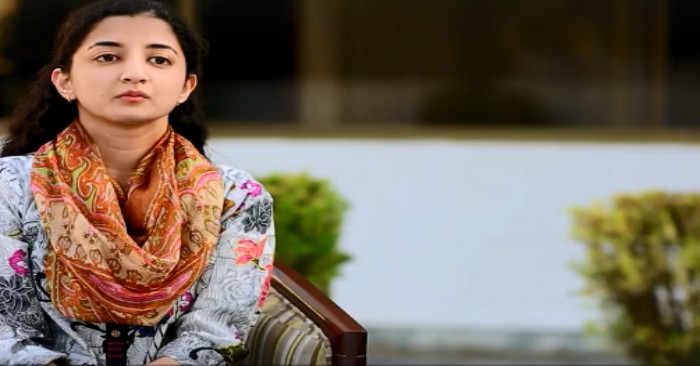Movies all over the world are an integral part of the entertainment industry. And when a movie does well at the box office, stars are feted and directors and producers lauded. However, in reality it is the writers who write the screenplays that hold films together and the memorable dialogues that people remember who seem to be given the shortest shrift in talking about films.
Icon spoke to four rising young writers — Vasay Chaudhry (Main Hoon Shahid Afridi, Jawani Phir Nahi Ani), Yasir Hussain (Karachi Se Lahore, Lahore Se Aagey), Osman Khalid Butt (Siyaah, Janaan) and Bilal Sami (Dobara Phir Se) — to get their takes on why Pakistan continues to have a problem with scripts. And we bring you the conversation they had with the handsome guy in the town, Osman Khalid Butt.
Most of the films in Pakistan seem to have a story angle borrowed from Bollywood. Why can’t we have original concepts?
Osman Khalid Butt: Ever since our cinema’s much talked-about revival, we’ve seen quite a bit of diversity — much more than you’d expect from an industry still in its teething phase. We are in the process of discovering our cinema identity, so right now it is difficult to divorce ourselves from Bollywood as entire generations have grown up watching and admiring that brand of filmmaking.
Most people think the weakest link of Pakistani films is their scripts. Do you think not enough importance is being given to the writers — whether financially, in terms of time or in terms of voice?
OKB: I definitely feel writers should be given more importance, their work respected more. A screenplay is not a buffet where you can pick and choose what scenes you want to shoot and what you want to axe. A writer should always be consulted on script-related matters. A good director-writer relationship is also extremely important and the two need to be completely in sync. Which, from what I hear, is not the case most of the time.
You have come to script writing via other fields e.g. acting. Is it important to gain recognition in some other way before you’ll get a shot at writing a film? And what in your opinion is the one thing holding back new writers from entering the field? What is the biggest issue?
OKB: I have always acted and written simultaneously, even during my theatre days. I personally feel you’re judged on the merit of your work, not your name or your brand, at least till you’ve proven yourself. I also feel this is the perfect time for writers to be pitching their one-liners and concepts — make sure you trademark them or trust your sources — to production companies. Everyone’s on the hunt for a good script. Just be open to have your work dissected, pulled apart and altered.
What do you personally find the most difficult part of writing a screenplay? Is it the structure, the character development, the dialogue or something else?
OKB: For me, it’s because I think and sometimes write dialogues in English so a few times I’ve been in that ‘lost in translation’ scenario. Also, I tend to be very possessive about my work. I remember having so many arguments with Azfar [the director of Siyaah and Janaan] because one deleted line felt like murder. It’s been a long process, learning the art of letting go for the betterment of the film.
People still remember dialogues from many old films but not the new ones. Why?
OKB: I have seen people quoting from Shoaib Mansoor’s repertoire, lines from Manto, heard people pass on jokes and one-liners from JPNA and Actor In Law, and even from Janaan. You can’t expect iconic dialogue unless it’s a period piece or a high-voltage one such as Mughal-i-Azam and Sholay.
Why do most of our scripts come across as TV plays? Is it because all the writers are from TV?
OKB: This question can be answered by the directors. Unless the genre is a drawing-room melodrama. Even then, I don’t think any screenwriter devises scenes with the explicit instruction: ‘Stick to extreme close-ups and mid-shots only. Long shots/moving camera equals blasphemy. If your camera zooms out I’m calling the Council of Drama Serial Ideology.’
Why can’t we make big-budget films on a huge canvas? Why must it always be a romance with the zalim samaj as the villain?
OKB: Where are these fabled ‘big budgets’ is the real question. Where are these mythical investors? An audience poll must be conducted to know what they want to watch on the big screen — either way, it’ll act as a wake-up call.
One sees a lot of people complaining about blatant advertising in Pakistani films. How important is branding for a film in general and for a script in particular?
OKB: I have never been conscious of branding while writing. There are moments where an opportunity presents itself so I just add ‘XYZ brand sponsorship opportunity here’ in my notes — but only if it’s done in a tongue-in-cheek manner. I wish filmmakers would include writers in the brand incorporation process. We could come up with much cleverer ways to integrate a brand instead of it looking like a blatant advert.
Any advice for newcomers who want to try their hand at writing?
OKB: Read. Purchase or download scripts of epic films — or any film that subscribes to your personal brand — and observe/dissect those screenplays. Research. Did I mention ‘read’?



